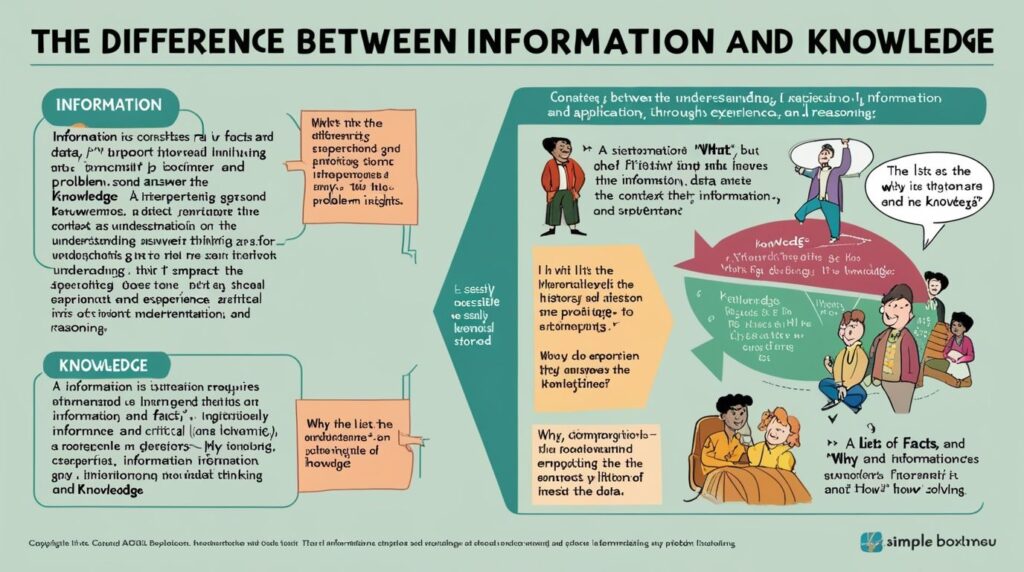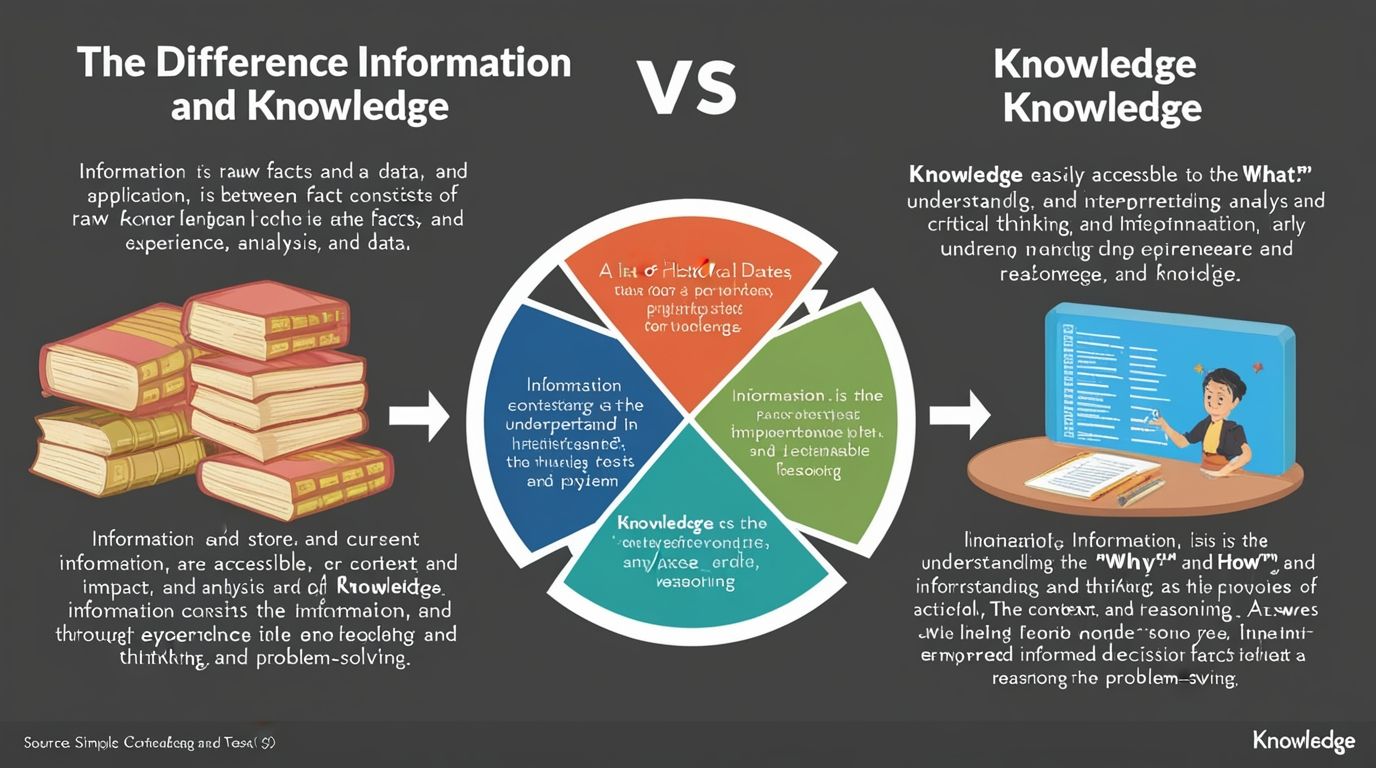Information Vs.Knowledge, In today’s digital era, the terms “information” and “knowledge” are often used interchangeably. However, a clear distinction exists between the two. Understanding this difference is essential for fostering critical thinking and effectively navigating the vast sea of data we encounter daily.
Defining Information
Information refers to organized data that is processed to be meaningful in a specific context. It is factual, descriptive, and readily available through various sources such as books, databases, or the internet. Information can be quantitative or qualitative, often serving as the raw material for analysis and interpretation.
For example, statistics on global temperatures over the past century represent information. This data provides details about patterns but lacks the deeper meaning or application that comes with interpretation.
Defining Knowledge
Knowledge, on the other hand, is the comprehension and application of information gained through experience, reasoning, or study. It involves understanding the context, implications, and interrelationships of information, enabling individuals to make informed decisions.
Using the previous example, knowledge arises when a scientist uses temperature statistics to understand climate change, predict future trends, and propose mitigation strategies. It represents an integration of facts into a coherent framework of understanding.
Key Differences Between Information and Knowledge
- Nature and Context
- Information: Facts, figures, or instructions that are context-independent. It lacks personal insight or application.
- Knowledge: Contextualized and personalized understanding derived from analyzing and interpreting information.
- Acquisition
- Information: Easily accessible through technology, books, or communication.
- Knowledge: Requires cognitive effort, critical thinking, and often practical experience.
- Purpose
- Information: Provides input for various processes but does not necessarily solve problems.
- Knowledge: Facilitates decision-making, problem-solving, and innovation by applying information effectively.
- Dependency
- Information: Can exist independently as isolated facts or data.
- Knowledge: Relies on information but is augmented by reasoning, context, and insight.
- Storage and Transfer
- Information: Can be stored in physical or digital formats and shared universally without alteration.
- Knowledge: Resides in the human mind, influenced by personal experiences and perspectives. Its transfer often requires interaction, mentorship, or education.

Information Without Knowledge
The availability of vast quantities of information in the digital age does not automatically lead to knowledge. For example, search engines provide access to endless data, but without the skills to analyze and interpret it, individuals may struggle to derive meaningful conclusions. This phenomenon is often referred to as “information overload,” where excessive data hinders effective decision-making.
Knowledge as a Transformative Tool
While information serves as the foundation, knowledge empowers individuals to act. It transforms raw data into actionable insights. In education, for instance, students receive information through textbooks and lectures. However, it is their ability to comprehend and apply this information—developing knowledge—that leads to academic success and practical skills.
The Interplay Between Information and Knowledge
Although distinct, information and knowledge are interconnected. Information is the building block of knowledge, while knowledge gives meaning and purpose to information. Together, they drive innovation, learning, and progress.
For example, in the field of medicine, patient health records (information) provide critical data. Doctors use their knowledge to analyze this data, diagnose illnesses, and recommend treatments. Without information, knowledge lacks direction; without knowledge, information remains unused.
The Role of Technology
Modern advancements in technology have amplified access to information but have not necessarily bridged the gap to knowledge. Artificial intelligence and machine learning are beginning to mimic human reasoning, offering insights from data analysis. However, the human element—judgment, empathy, and creativity—remains irreplaceable in transforming information into true knowledge.
Practical Implications
- Education: Educators must emphasize critical thinking and problem-solving skills, enabling students to convert information into knowledge.
- Workplace: Organizations benefit from fostering knowledge-sharing cultures where employees can learn from each other’s experiences.
- Personal Growth: Individuals should practice discernment, evaluating the reliability and relevance of information to build meaningful knowledge.
Conclusion
While information represents the “what,” knowledge embodies the “why” and “how.” The distinction lies in the transformation of data into meaningful understanding. In an age saturated with information, prioritizing the development of knowledge ensures that individuals and societies can make informed decisions, solve complex problems, and continue to innovate. Understanding this difference is not just an academic exercise but a practical necessity for navigating the challenges of the modern world.

10 thoughts on “Information Vs.Knowledge”
Comments are closed.